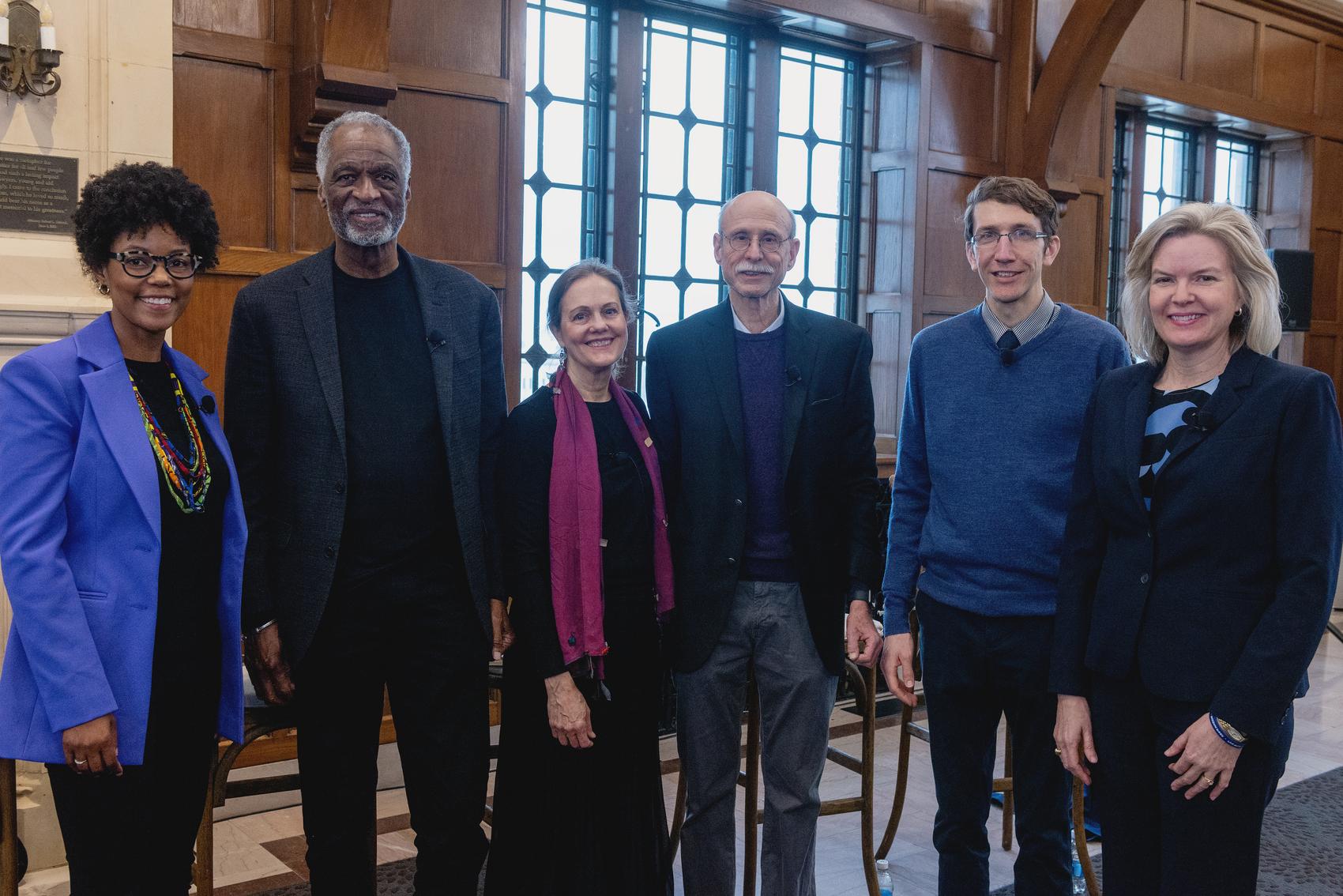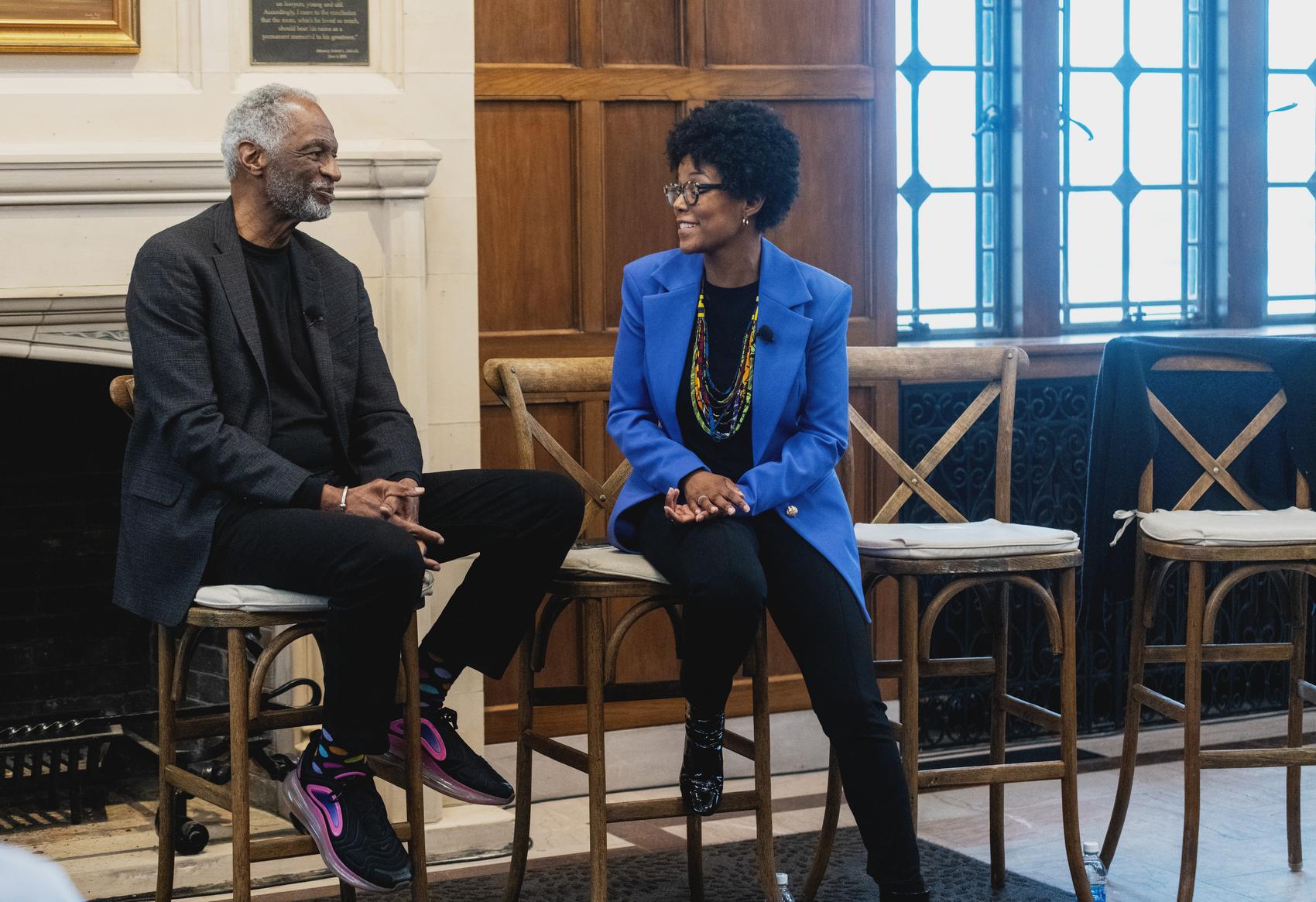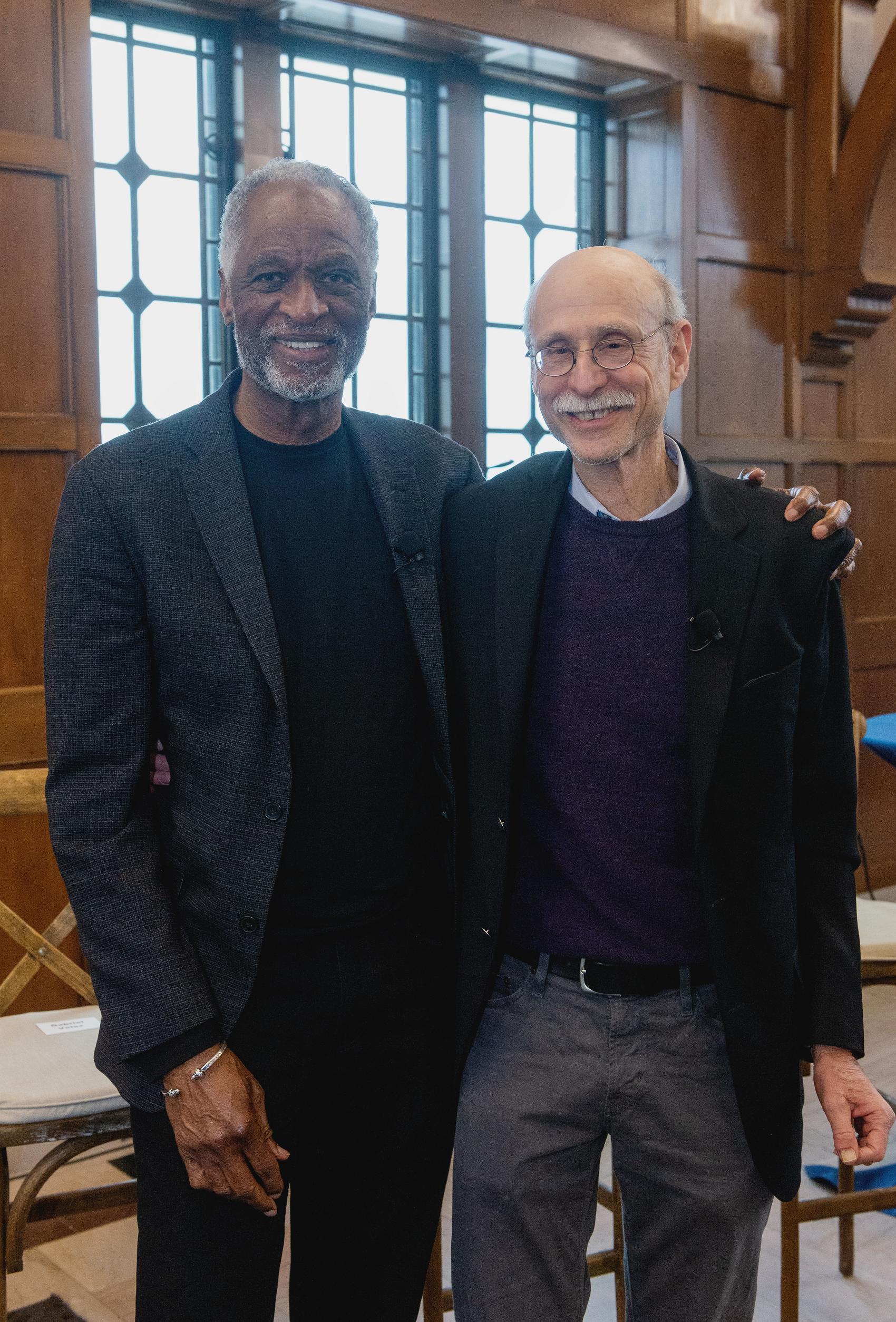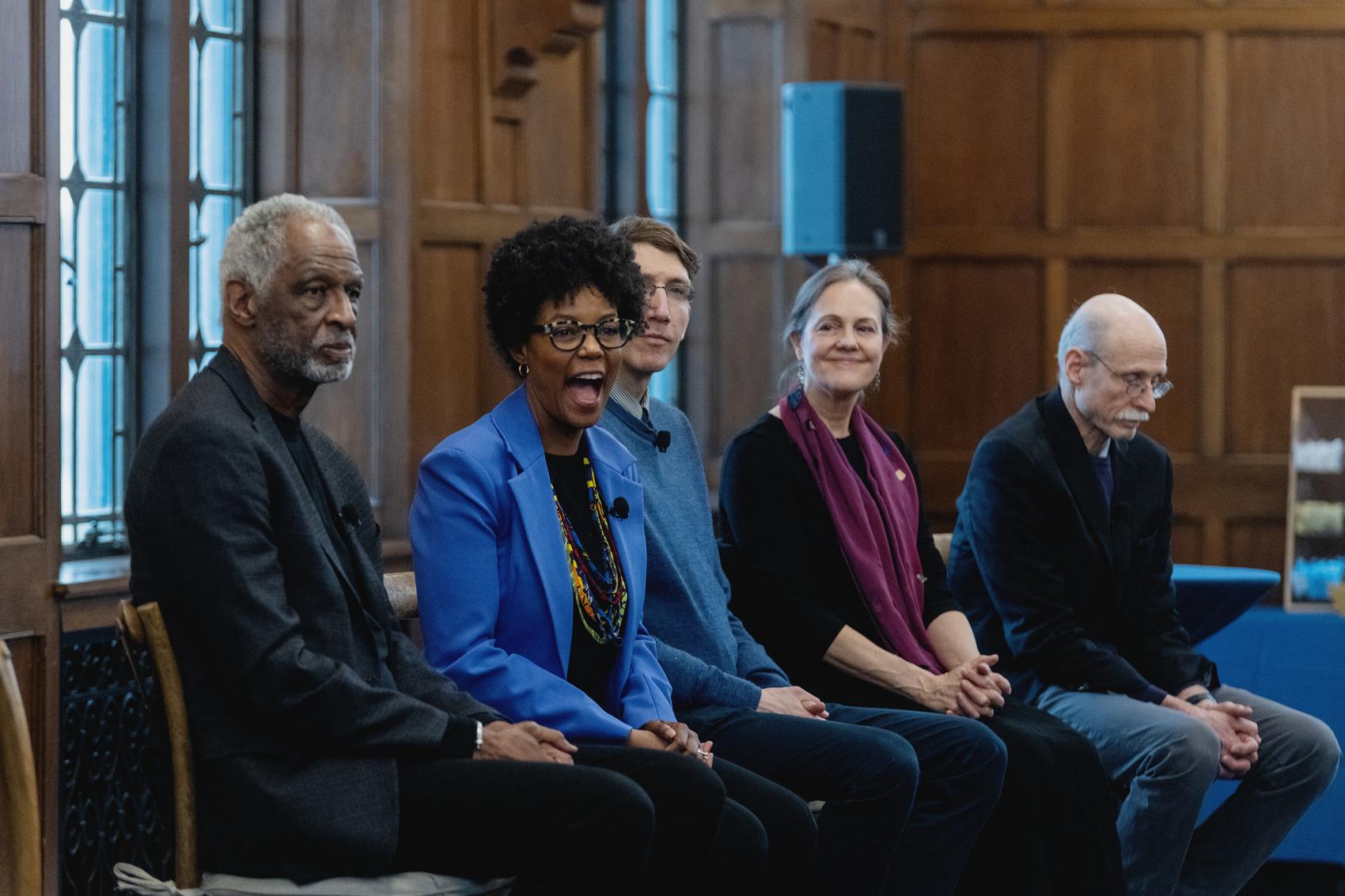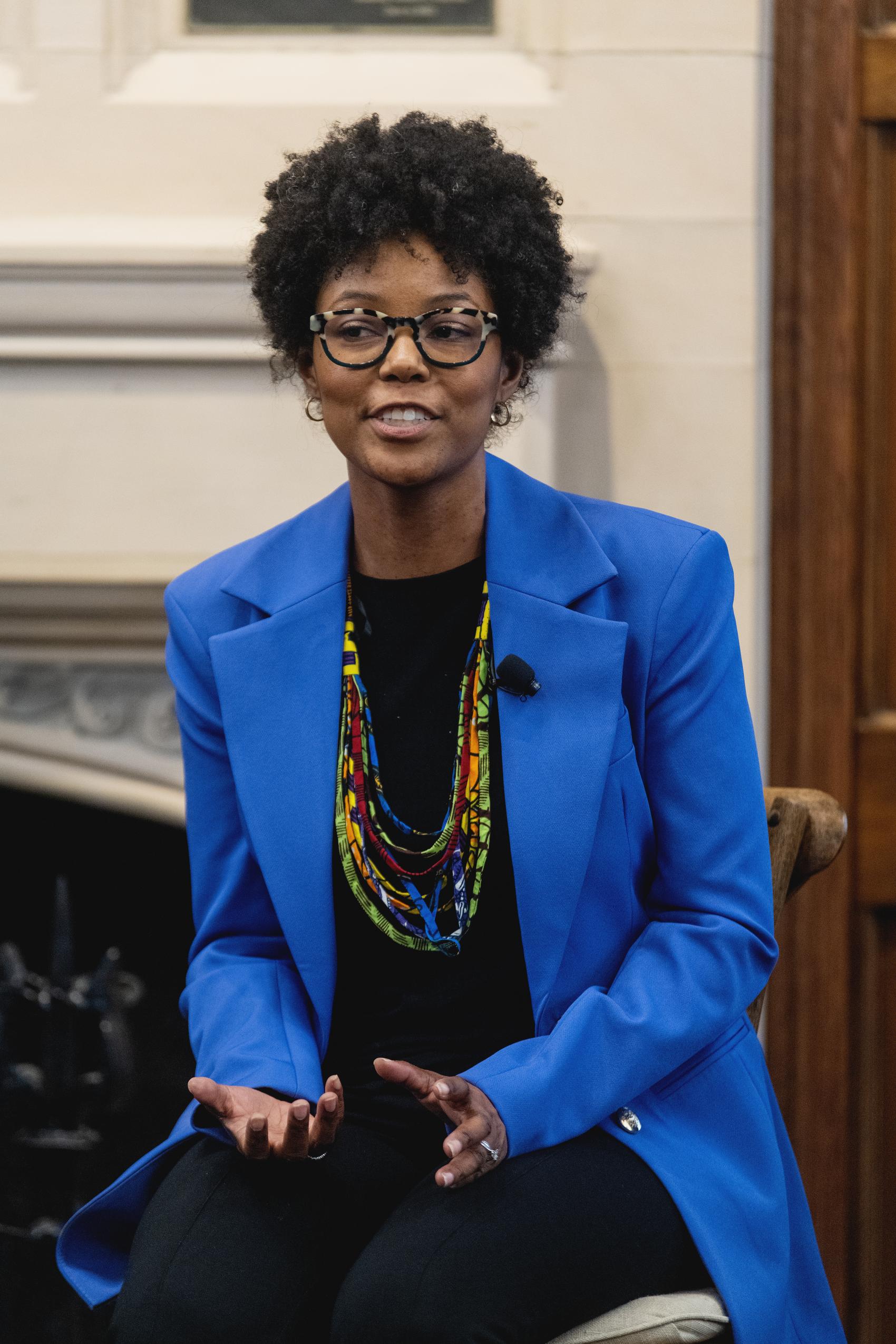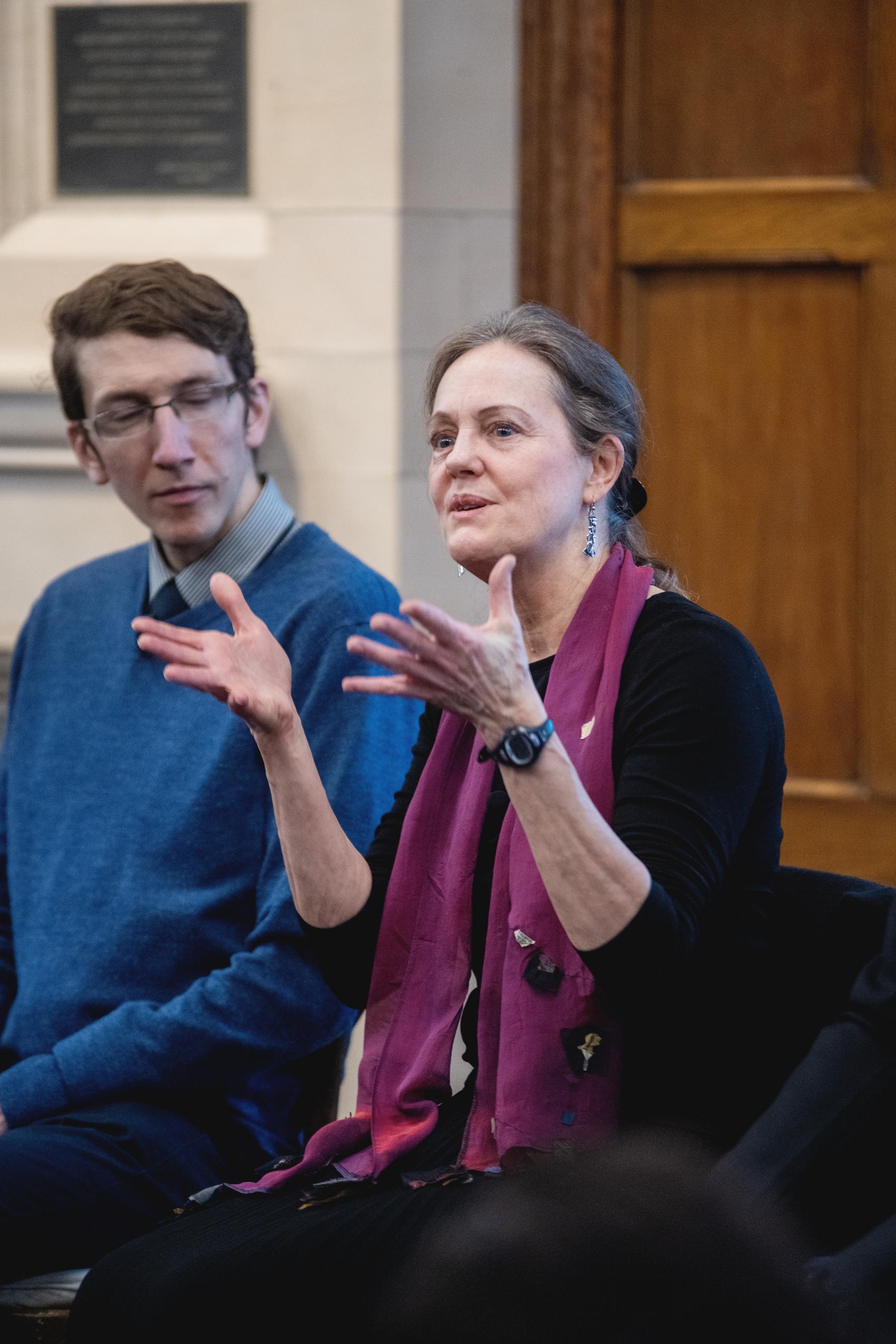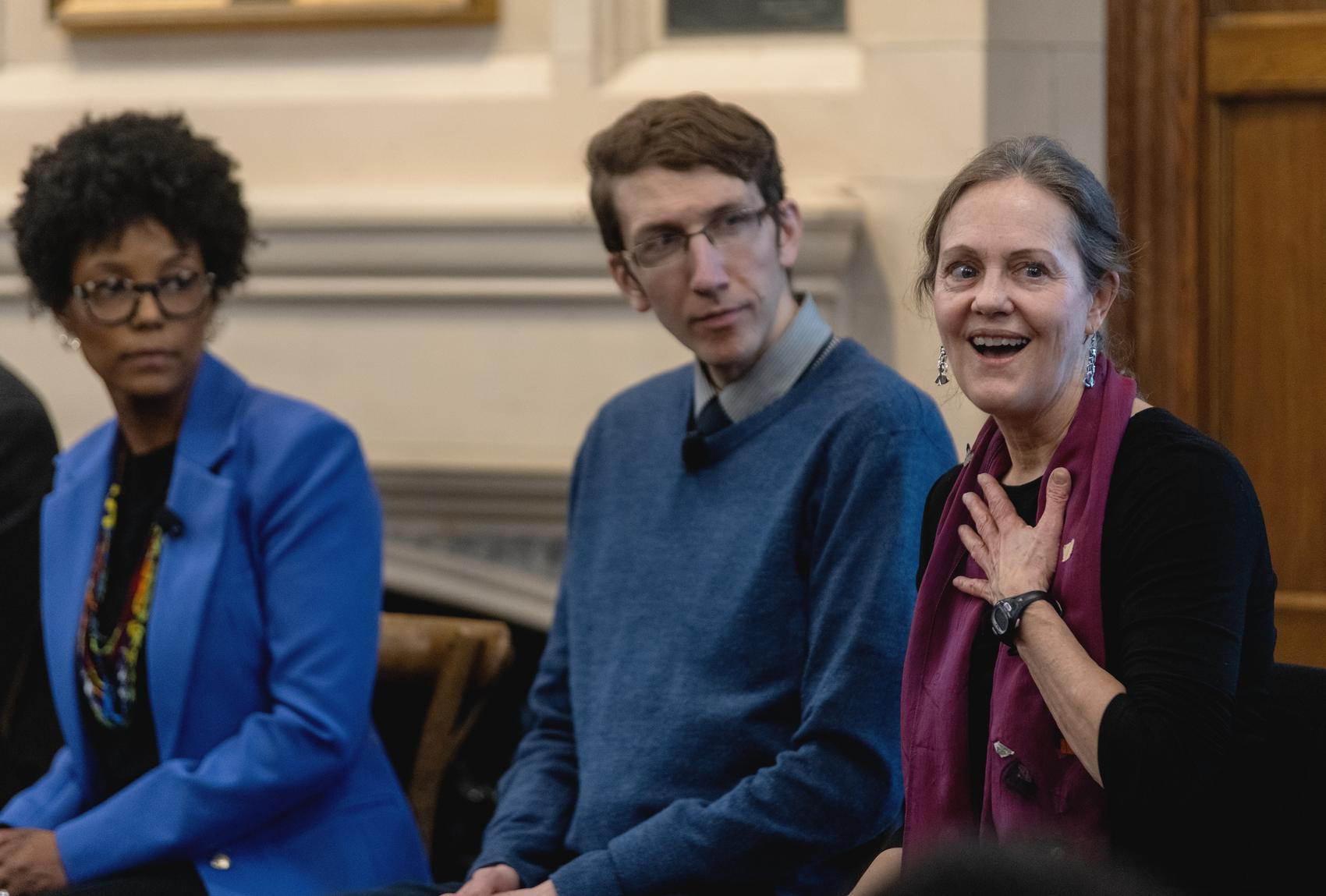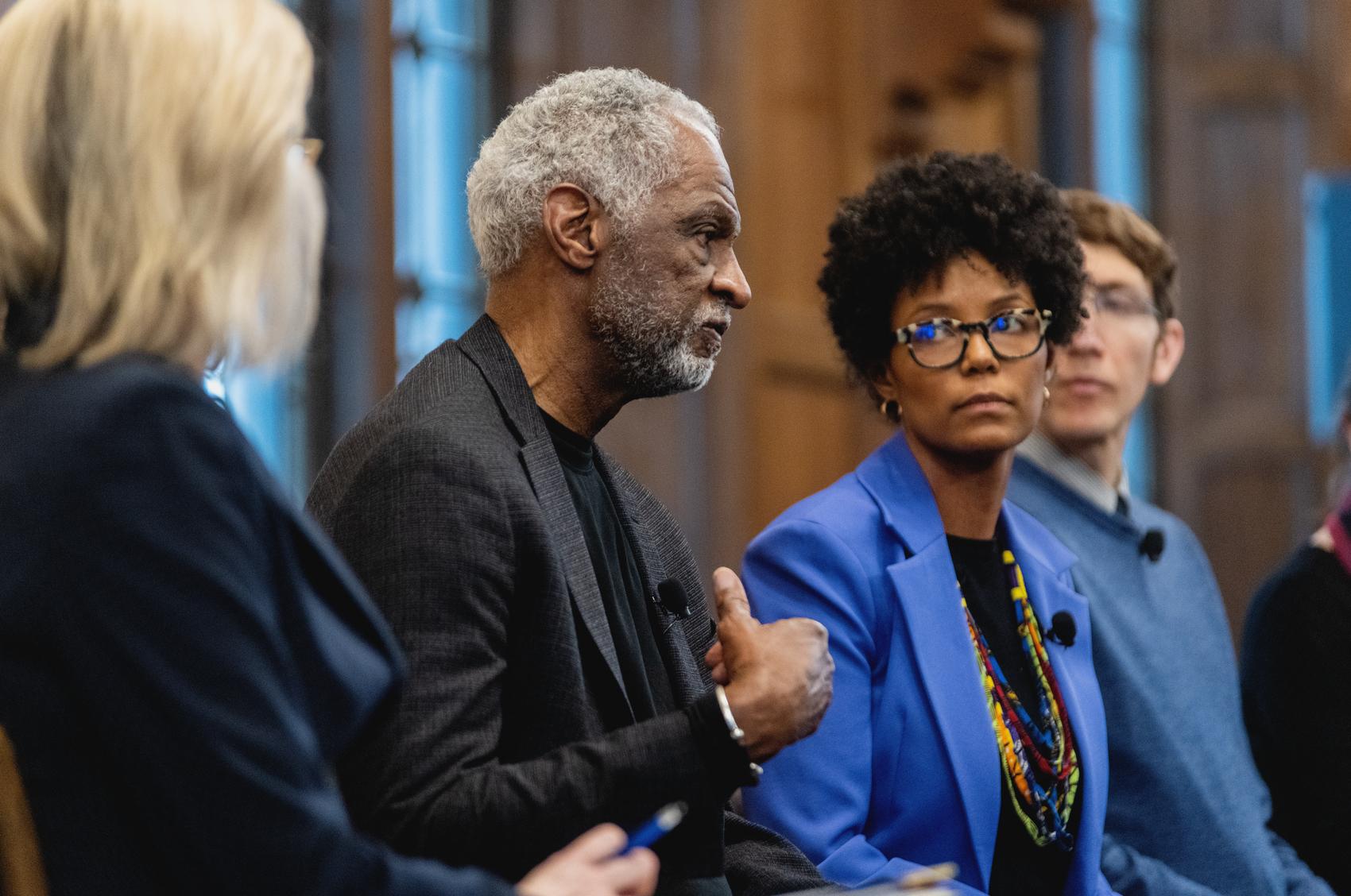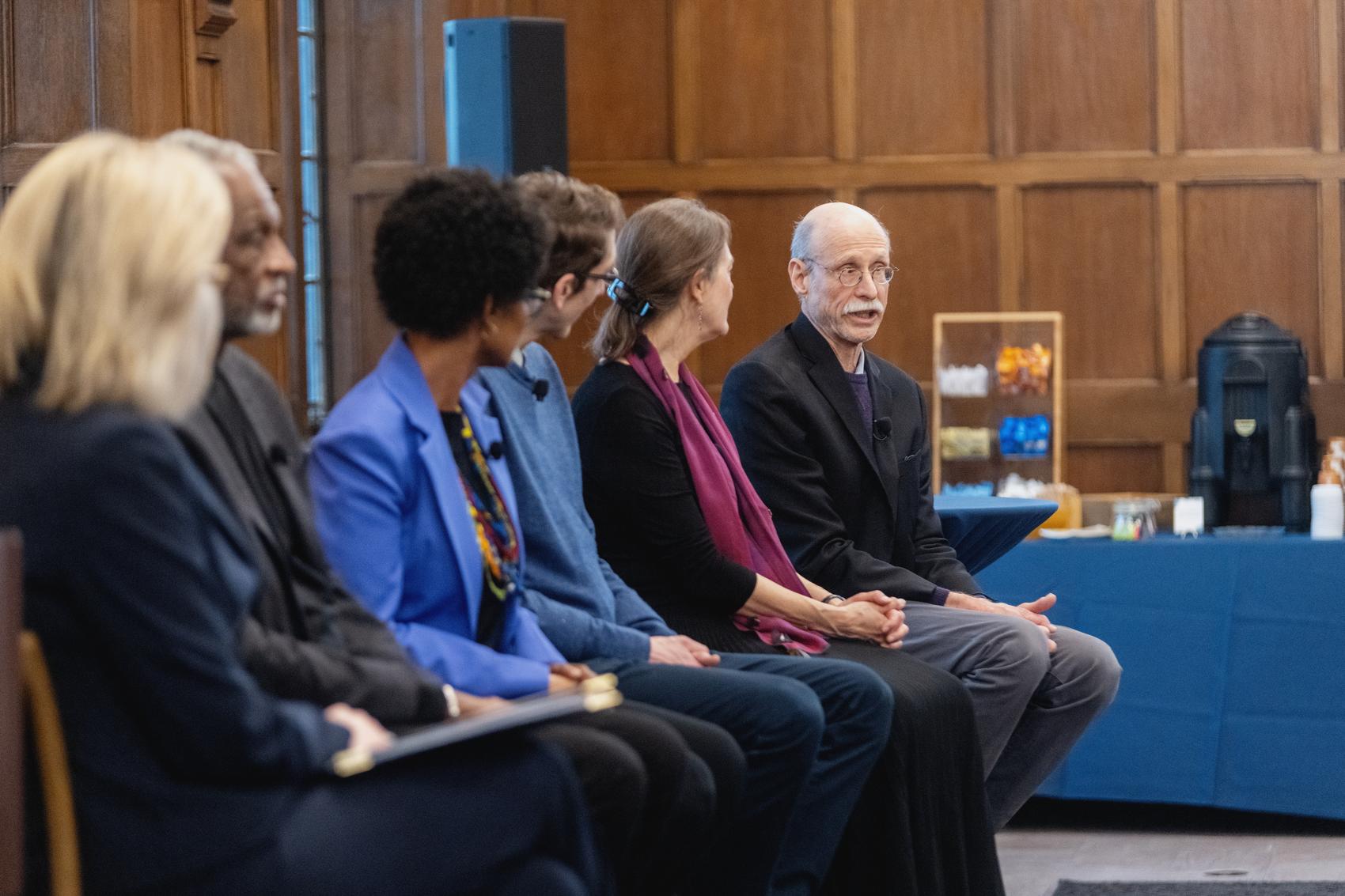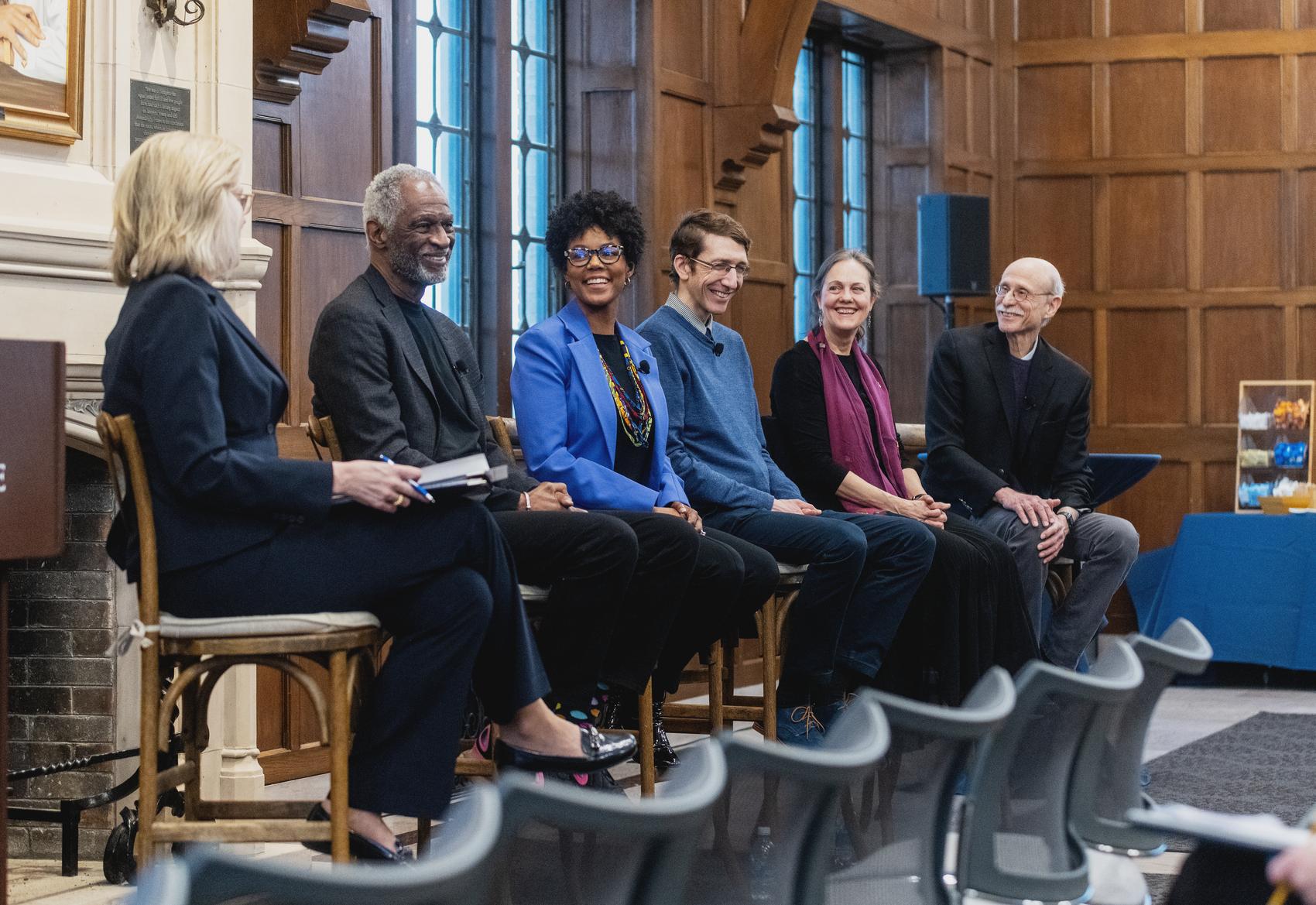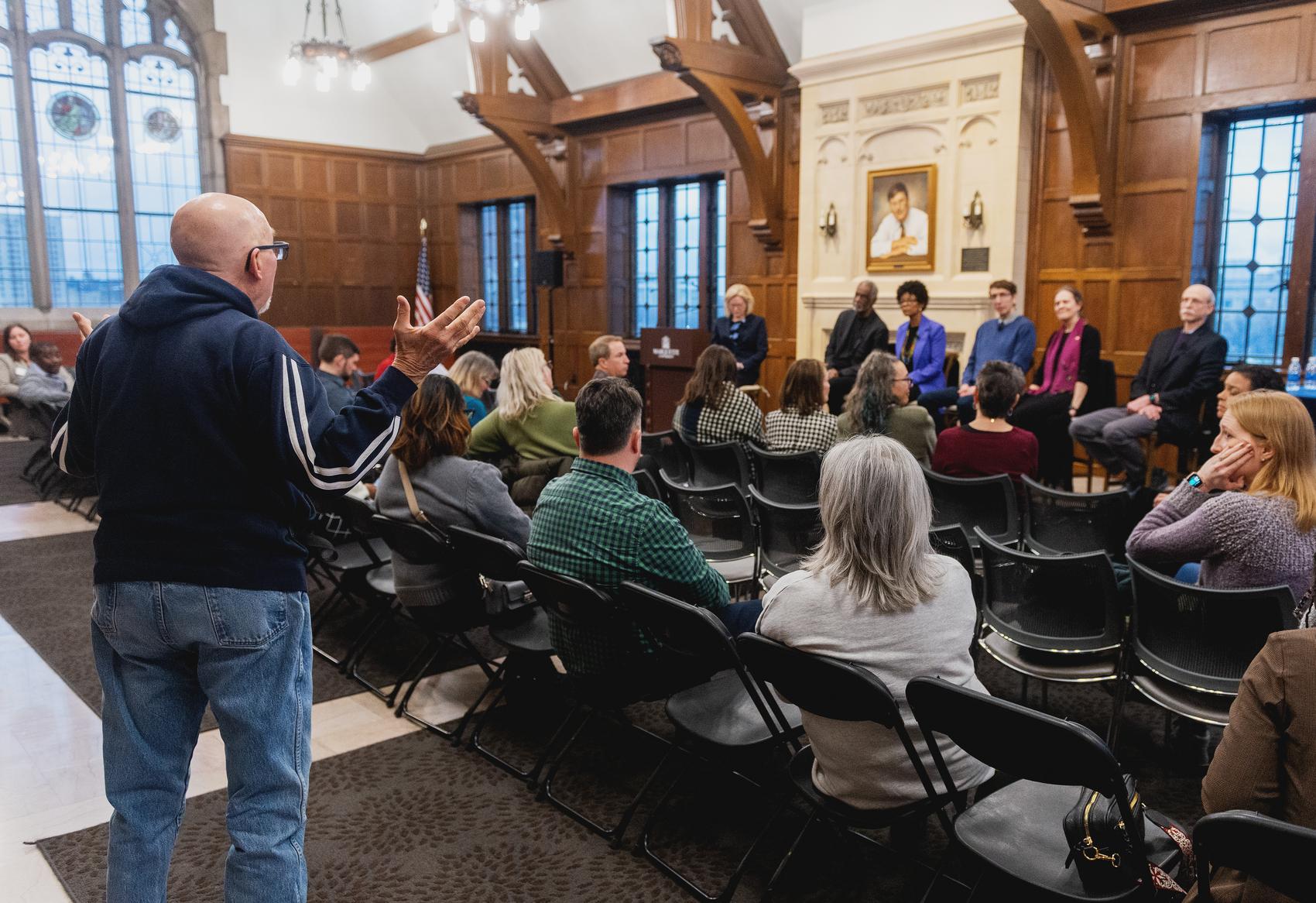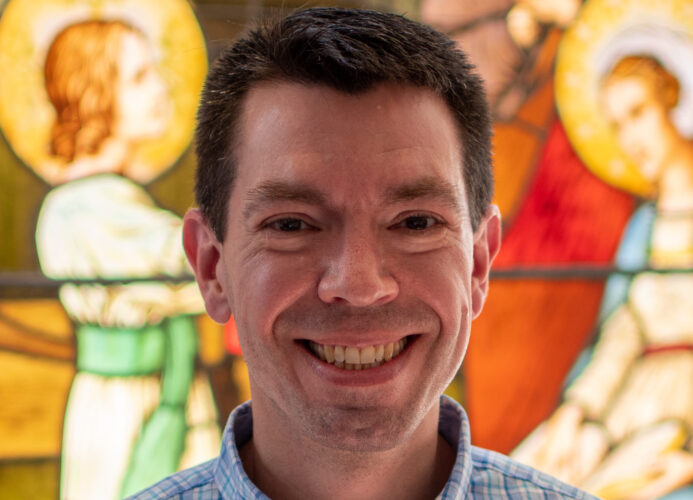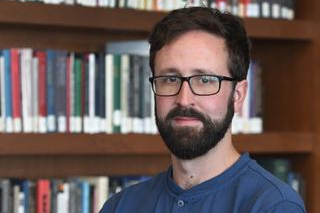On Thursday, Feb. 23, a panel of five educational leaders met in Marquette’s Sensenbrenner Hall to discuss the barriers education still faces when it comes to equity, as well as what those at Marquette are trying to do about it.
Taking part in the panel, which was moderated by Dr. Heidi Bostic, dean of the College of Education and Klingler College of Arts and Sciences, were:
- Dr. Howard Fuller, Grad ’85, distinguished professor emeritus in the College of Education
- Maya Payne Smart, affiliated faculty in the College of Education, parent educator, literacy advocate, and the author of “Reading for Our Lives: A Literacy Action Plan from Birth to Six”
- Dr. Gabriel Velez, assistant professor and developmental psychologist in the Department of Educational Policy and Leadership in the College of Education
- Dr. Cynthia Ellwood, associate clinical professor in the Department of Educational Policy and Leadership in the College of Education and the coordinator of the Marquette Educational Leadership Program
- Dr. Robert Lowe, professor emeritus in the College of Education
“I don’t see us stepping up to the challenges that our children face,” Fuller said of society as a whole. “What I see are individuals. There are individual people who are doing everything that they can to try to make a difference. But when you look at the political structure writ large, there is no commitment. And we’ve got to stop acting like there is. What I’ve always struggled with is what little bit I can try to do that will make a difference at least in the moment that I’m alive.”
The event was hosted by the Marquette University Alumni Association in partnership with the College of Education, Institute for the Transformation of Learning and the Hartman Literacy Center. Panelists discussed how Marquette is developing future educators who uphold the values of academic excellence, social justice, ethics, service and cura personalis (care for the whole person), and how the university is partnering with renowned educational voices and community leaders to elevate equity and excellence.
“As difficult as it’s been, we are at a moment of real disruption,” Ellwood said. “We are talking now about systemic racism. It is a part of our vocabulary. We have a long way to go in order to act on new understandings, but it strikes me as a moment of real opportunity as difficult as it may be at the moment.”
